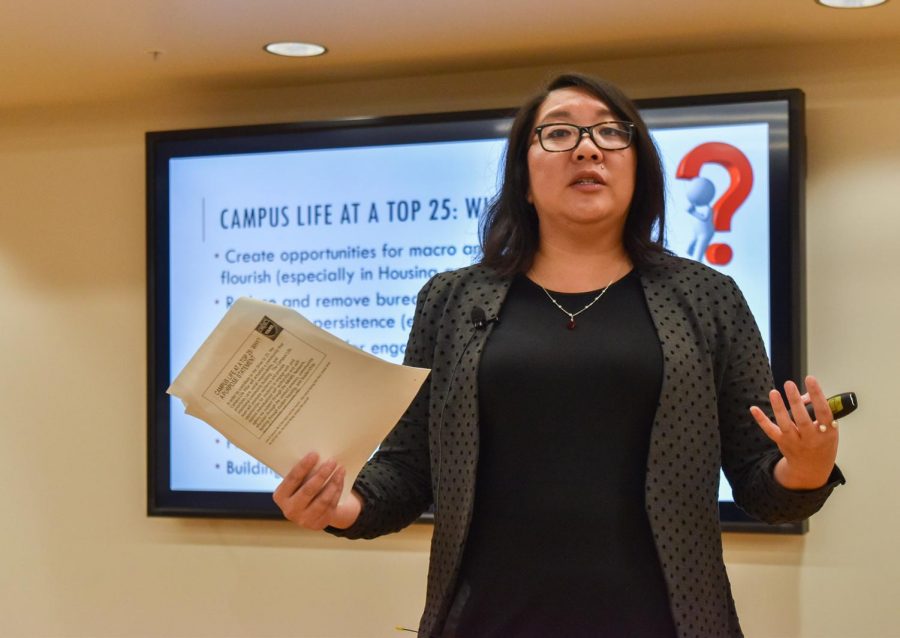University to hold meeting on proposed changes to first-year live-in requirement
First-year students can stay at home during a pandemic if changes are approved
JENIN REYES | DAILY EVERGREEN FILE
The proposed changes are designed to give students and WSU more flexibility around the first year living requirements, said Jill Creighton, WSU Dean of Students and Associate Vice President for Student Affairs.
October 6, 2020
WSU will hold a public hearing 4 p.m. Oct. 7 via Zoom about the proposed changes to the state’s first-year live-in requirement established by the Washington Administrative Code.
Over the summer, WSU’s Office of Procedures, Record and Forms added an emergency rule to the Washington Administrative Code section of undergraduate housing requirements. The rule allows students to stay home rather than live on campus for their first year because of COVID-19, said Deb Bartlett, director of WSU’s Office of Procedures, Records and Forms.
The proposed changes would make the emergency rule a permanent part of WAC in case another pandemic or a similar situation occurs in the future, said Jill Creighton, WSU dean of students and associate vice president for Student Affairs.
This allows WSU to ensure that students can stay home and learn online from their permanent address during the coronavirus pandemic, Creighton said. The changes also ensure that students, when they are able to return to campus, are not required to live on campus after their first year.
The proposed changes are designed to give students and WSU more flexibility around the first year living requirements, she said.
“As you can probably imagine, the policy was not written with the global pandemic in mind,” Creighton said.
Before the pandemic, first-year live-in requirement exemptions included living with a parent within driving distance of the university, having a medical reason not to live in residence halls or having financial hardships that would be increased by living in the halls, according to WSU’s Housing and Residence Life website.
Making a revision to the Washington district codes takes about seven and a half months, Bartlett said. Because of the circumstances, the emergency rule was filed June 30 and went into effect the same day.
The change was immediately needed to accommodate students. Making the legal change was necessary to comply with guidance and directives from public health officials while preparing for the fall term, she said.
After the hearing, all comments provided will be summarized and sent to WSU’s Office of Student Affairs, WSU’s Office of the Attorney General and WSU President Kirk Schulz, Bartlett said.
University administration will determine whether they will continue with the proposed rules, or make some editorial or substantive changes.
If there are substantive changes to be made, the process will have to be restarted, Bartlett said. If there is an agreement with the proposed rules, Mary Jo Gonzales, WSU Vice President of Student Affairs, will present them to the university’s Board of Regents for adoption during their meeting on Nov. 12-13.
If the proposed rules are adopted on Nov. 13, WSU’s Office of Procedures, Records and Forms will be notified the following Monday or Tuesday, she said. The office will then file a permanent rulemaking order, and the rules will become effective either 31 days after submission or at a future date decided by the university.
The hearing will be on Zoom. More information can be found on WSU’s Office of Procedures, Records and Forms’ website.

















